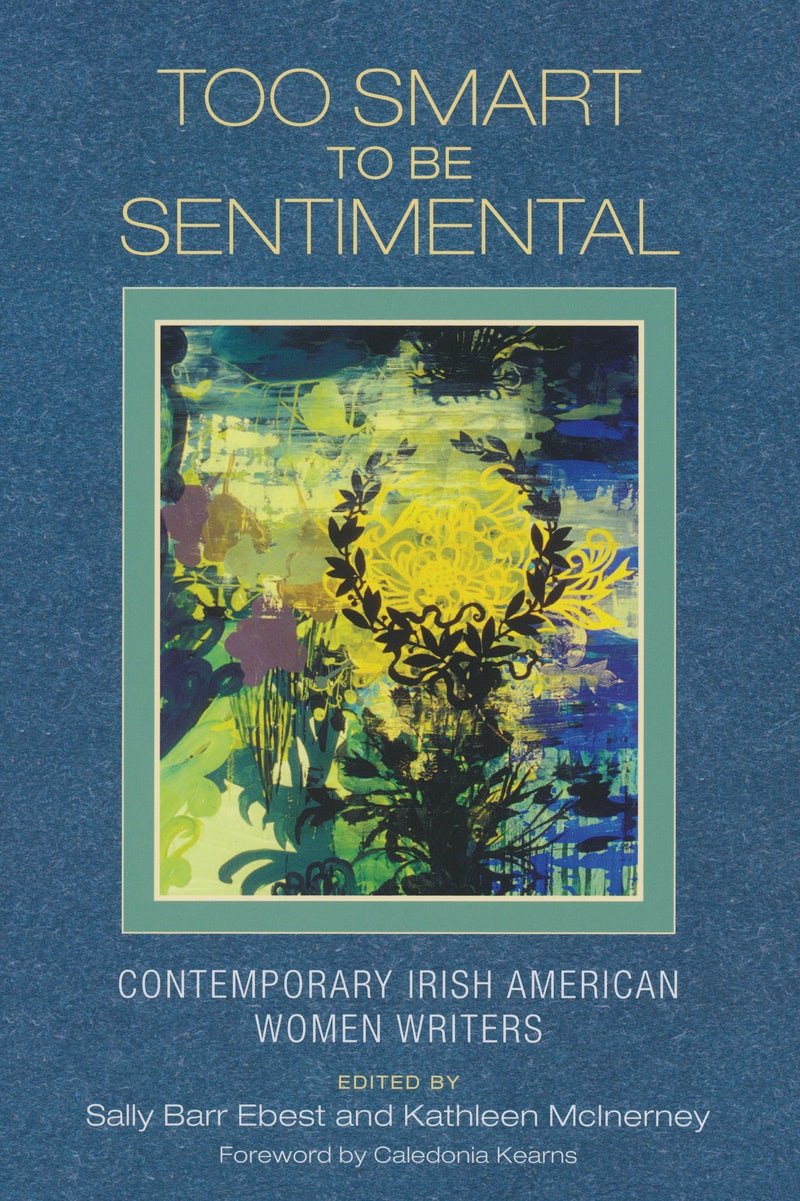“The Curve of Things takes shape in this book—a woman’s full hips but also a rolling mountain, water’s soft bend, or the thrum of Irish immigrants living at the hard edges. With all their music, these poems feast on queer love, mapping loss and liberation, exploring her beloved’s scars, and the knot of kinship that remains even when lovers part. Tragic and tender, The Curve of Things tumbles through the ecstatic joys and difficulties of loving women, celebrating provocatively this long-stretching terrain of desire. These poems choose love over defeat, finding deliciousness in every ache and in every yearning.”
Even though the penultimate poem swears that it’s not about Newark, Parents, Religion, or Longing, each poem in this collection gets to the heart of one child’s experience of the profound and lasting impact of Vatican II and Vietnam, of the Civil Rights Movement in the U.S. and in Ireland. With evocative detail Kremins revisits the clashing of national and international politics with family values, joys, and traumas. Undressing the World removes layers of convention and silence to reveal a child who is both living innocently with her heroes “in a Technicolor imagination” and also living with the hard earned wisdom that even “Casper couldn’t rescue my eyes.” These poems are full of the hands that do the undressing: hands praying, hands working, hands caressing, hands harming: “Those hands, eighty seven years of history imprinted on callused / fingertips and broad palms…” In this collection, rich in poetic form and specific cultural and historical images, Kremins takes our hands and invites us to explore identity and loss and the body and tragedy, war and peace, and love and hope in all their variations.
–Lynne McEniry, author of some other wet landscape
When was the last time you heard a good love song? Kat Kremins’ Undressing the World is full of them, tough and tender lyrics about the hard truths of personal and collective histories: a childhood whose “Technicolor imagination” is “interrupted or canceled” by the Kennedy assassination, “the blood taste of Vietnam,” the struggle for Civil Rights, a world undressed in a working class Irish immigrant Newark where a “dark green Oldsmobile” won in a church raffle is “a sign of wealth we didn’t have.” Kremins is a bard of the body as both “myth [and] narrative we are given as children” and “Republic,” and reminds us that history is not a dead abstraction but a constant living presence urging us to attain the kind of love that “needs no words.”
—PaulA Neves, author of capricornucopia (the dream of the goats), winner of the 2020 NJ Poets Prize, co-founder Parkway North Productions.
Undressing the World by Kathy Kremins is awe, experience, love, grief, joy, acceptance, and memory in one exhale. With the backdrop of a Newark, NJ in historical transition, Kremins’ poems are technicolor hymns and elegies collectively displaying an ode to a life lived, living, and still learning where Undressing the World is not only the unpacking and reckoning of memory, but is a created space for the speaker to see “my face/ The map it is, lines of/ Every touch, tenderness.”
–Dimitri Reyes, author of Every First & Fifteenth
Undressing the World
An Ethics of Reading
The Broken Beauties of Toni Morrison Nawal El Saadawi, and Arundhati Roy
Contemporary, postcolonial fiction demands an ethics of reading. An ethical reading involves more than the narrow reading permitted by the critics who espouse a politics of identity. To read ethically means to consider a variety of divergent perspectives as the reader engages with, and often wrestles with, the text. Reading ethically challenges the reader to make reading an act of resistance. Therefore, because of such demands, traditional literary criticism can be too confining. In studying Morrison, El Saadawi and Roy, and reading them ethically, Dr. Kathleen Kremins proposes a fresh and innovative perspective on literary criticism and theory. By relying on art and film critics, cultural, political and social critics as well as literary critics who have rejected the analytical traditions of the last thirty years, Dr. Kremins argues that an ethical reading cannot exist in isolation; for a reading to be ethical, the text must be informed by and engaged with other texts, as well as history and other art forms. Unlike Terry Eagleton who claims that literary theory is dead, Kremins asserts that literary theory must be re- visioned for a new century and world.
Too Smart to Be Sentimental
Contemporary Irish American Women Writers
Edited by Sally Barr Ebest, Kathleen McInerney
In a series of critical and biographical essays, Too Smart to Be Sentimental offers a feminist literary history of twentieth-century Irish America. This collection introduces the reader to the works of twelve contemporary Irish American women writers, some of whom are well known, such as Joyce Carol Oates, Alice McDermott, and Tess Gallagher, and some of whom are equally deserving of recognition. Each chapter focuses on a particular writer, describes and discusses that writer's most important works, contextualizes the discussion with relevant biographical material, and highlights why the writer is representative of the Irish American literary tradition. Too Smart to Be Sentimental - the first critical study of contemporary Irish American women authors—will be invaluable to students and scholars of Irish studies and Irish American literature.
"This book gathers critical essays about Irish-American writers from Mary McCarthy to Erin McGraw. The essays that consider Mary Doyle Curran, Tess Gallagher, Eileen Myles, Mary McGarry Morris, Jean McGarvey, and Erin McGraw are valuable for their introductions to lesser-known writers or to writers who have achieved success but who are not necessarily known as Irish-American writers."—Maureen O. Murphy, Hofstra University
"These personal, thoughtful, and authoritative essays make an original contribution. They are of significance for scholars in several related disciplines: contemporary American fiction, Irish-American literature, sociology, ethnic studies, Irish studies, and women's studies."—Thomas A. Kuhlman, Creighton University



